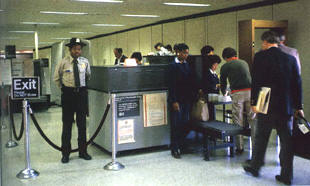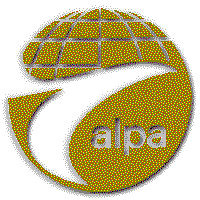Wants Country To Develop Program Similar To TSA, El Al
 Passenger profiling has some
negative connotations in today's politically-correct society, but a
growing number of governments are becoming believers in the
technique as a tool to make airline flight safer. Now, the Air Line
Pilots Association International, representing 2,100 Canadian
pilots at six airlines, wants Canada to develop a profiling program
of its own.
Passenger profiling has some
negative connotations in today's politically-correct society, but a
growing number of governments are becoming believers in the
technique as a tool to make airline flight safer. Now, the Air Line
Pilots Association International, representing 2,100 Canadian
pilots at six airlines, wants Canada to develop a profiling program
of its own.
The US Transportation Security Administration (TSA) already
conducts profiling -- not based on racial or ethnic factors, but
rather on behavior. TSA claims that in 2006, the 600 agents in its
"Screening Passengers by Observation Techniques" or SPOT program
identified 70,000 travelers exhibiting suspicious behavior, and 700
of them were arrested after being pulled aside for more detailed
questioning.
Israel's El Al Airlines has long used the technique, and
individually interviews each passenger to put trained agents in
actual eye contact with travelers before boarding. Techniques used
by El Al agents put the airline on the cutting edge of what is now
called "microexpression analysis," or the science of watching even
minute facial and body movements to detect signs of nervousness or
deception.
In the US, the TSA wants to double the number of trained SPOT
agents. In response to June's unsuccessful terrorist attack at
Glasgow's airport, the British government is set to employ a
high-tech variant of microexpression screening, in which video
cameras feed images of passengers' faces to computers, which are
programmed to analyze not only 10,000 individual facial movements,
but even the subject's skin temperature.
The Calgary Herald reports that introducing SPOT to Canada would
raise unique issues. Transport Canada is reported to be researching
what it calls "behaviour pattern recognition" and the legal
implications for Canada.
The Canadian Air Transport Security Authority (CATSA) currently
has responsibility for screening of passengers and explosives
detection at Canadian airports, but lack the training to conduct
microexpression screening. Before plunging into another expensive
government program to provide trained screeners, Canadian officials
will want to be sure the result justifies the cost.
Of the TSA's success claims in the US, Christopher Slobogin, a
University of Florida Levin College law professor, suggests that
the program's one per cent arrest rate proves little, pointing out
that the 700 arrests reported in 2006 were typically made on
routine matters such as outstanding warrants, immigration
violations, and other non-terrorism-related charges.
 Slobogin tells the Herald, "My guess
is that close to one out of every 100 people who go through
airports have committed or are committing some kind of offense. In
other words, random selection might produce the same hit rate,
without bothering with the expense associated with the program.
Since we already subject all passengers and luggage to
technological and occasional physical searches, why is such a
flawed program needed?"
Slobogin tells the Herald, "My guess
is that close to one out of every 100 people who go through
airports have committed or are committing some kind of offense. In
other words, random selection might produce the same hit rate,
without bothering with the expense associated with the program.
Since we already subject all passengers and luggage to
technological and occasional physical searches, why is such a
flawed program needed?"
Proponents of SPOT say the case of "shoe bomber" Richard Reid
demonstrates the importance of having screenings done by agents
with proper training. Reid was intercepted at Charles de Gaulle
airport in 2001 when a security agent was suspicious about his
plans for a long, overseas trip with no luggage other than a
backpack. He was turned over to French police and questioned
extensively, but eventually released because agents didn't know
enough to look in his shoes, where the high explosives were
hidden.
Most advocates of behavioral profiling are careful to separate
the concept from the idea of singling out passengers based on their
race, religion or ethnicity. In many western societies, the idea of
racial profiling is politically untenable.
In Israel, however, El Al is unapologetic about its policy of
paying extra attention to Muslim travelers in its security program,
and proudly points out that its last successful hijack attempt was
40 years ago.
 Airbus Racer Helicopter Demonstrator First Flight Part of Clean Sky 2 Initiative
Airbus Racer Helicopter Demonstrator First Flight Part of Clean Sky 2 Initiative Diamond's Electric DA40 Finds Fans at Dübendorf
Diamond's Electric DA40 Finds Fans at Dübendorf ANN's Daily Aero-Term (04.23.24): Line Up And Wait (LUAW)
ANN's Daily Aero-Term (04.23.24): Line Up And Wait (LUAW) NTSB Final Report: Extra Flugzeugbau GMBH EA300/L
NTSB Final Report: Extra Flugzeugbau GMBH EA300/L Classic Aero-TV: 'Never Give Up' - Advice From Two of FedEx's Female Captains
Classic Aero-TV: 'Never Give Up' - Advice From Two of FedEx's Female Captains




